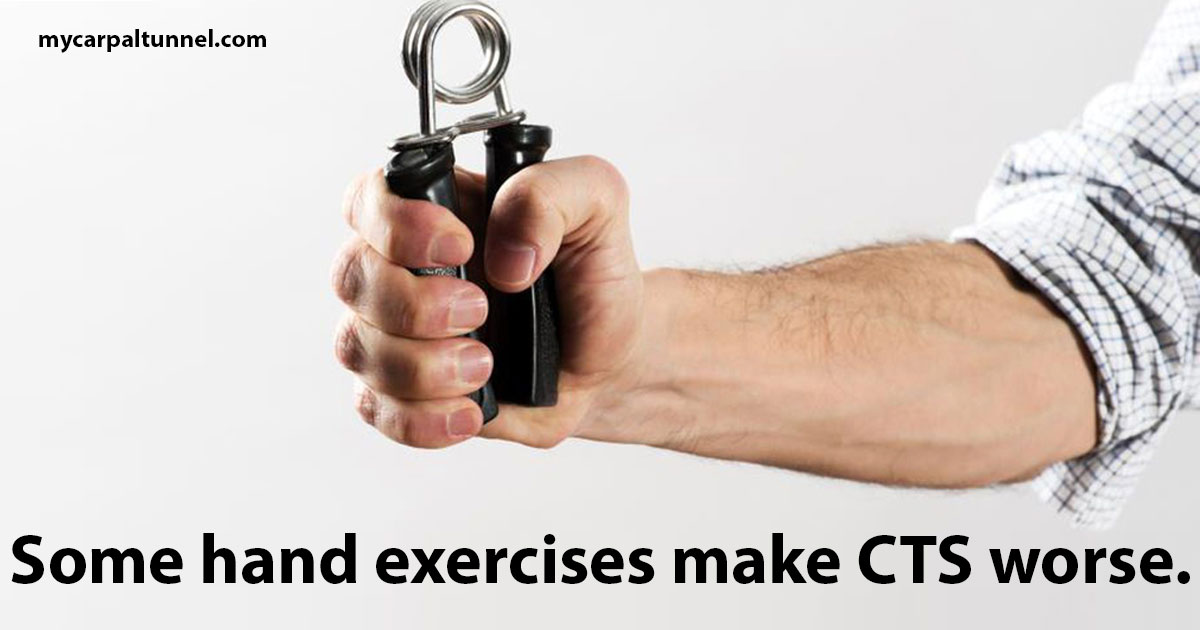Carpal Tunnel Syndrome Exercises

Are you searching for effective carpal tunnel syndrome exercises to alleviate your consistent pain and to restore the functioning of your hands, fingers, and wrists?
Truth be told, carpal tunnel syndrome is often very difficult to recover from with exercise alone. Computer users and other carpal tunnel sufferers often only respond to the nagging symptoms of CTS after years of abuse and discomfort.
Therefore, even the most methodical, diligent, and carefully executed CTS exercise recovery program will likely take weeks before some relief is experienced.
This delay in relief can test the most disciplined person’s will power and the discomfort experienced during the workout regimen can be challenging psychologically for most sufferers.
What Exercises Can I Do For Carpal Tunnel Syndrome?
Common exercises include yoga stretches designed especially for CTS to decompress overworked and compacted muscles and tendons in the hands, wrists and forearms. Nerve glides can help to restore range of motion, and hand and wrist strengthening exercises also help. Many sufferers squeeze balls of clay, do finger extensions with rubber bands, and lift light weights to rebuild forearm strength.
Yoga poses to help with Carpal Tunnel
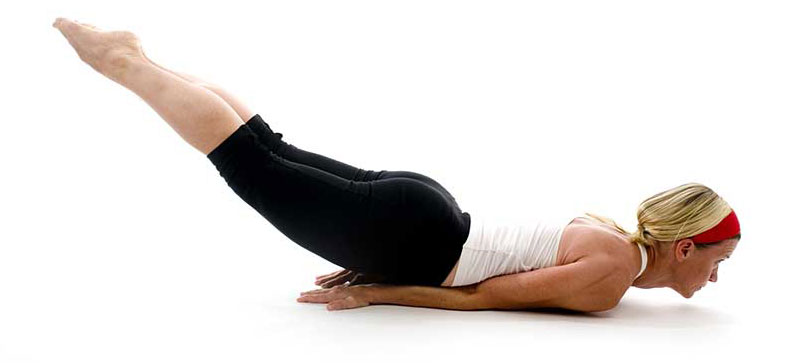
Locust pose, also known as Salabhasana, may appear to focus on the lower body, however, if you have Carpal Tunnel or arthritis, this is a great preventer pose and helps with circulation through the arms and fingers. Locust pose also helps with fatigue, indigestion and lower back pain.
To feel the maximum benefit for Carpal Tunnel, make sure palms are face down and elbows are straight.
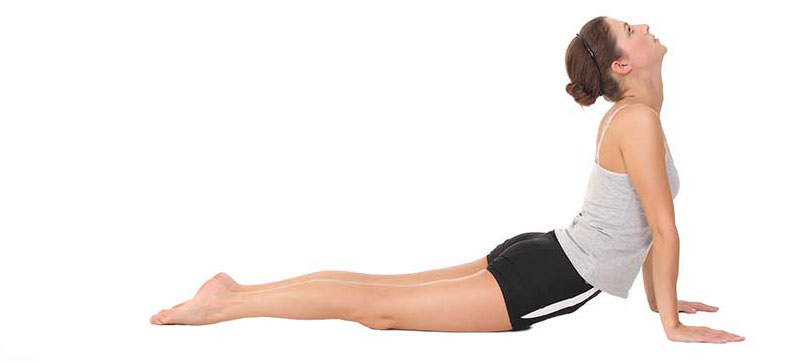
Another popular yoga position that can benefit someone suffering from Carpal Tunnel, is the Upward-Facing Dog. This Urdhva Mukha Svanasana pose is one of the positions in the traditional Sun Salutation sequence. This pose is one of the most common poses in yoga, and will help strengthen wrists and increase circulation.
It should be noted that all yoga poses where the wrists and hands are used to support the body are beneficial in increasing strength and circulation for those suffering with CTS.
Stretches just for wrists and fingers
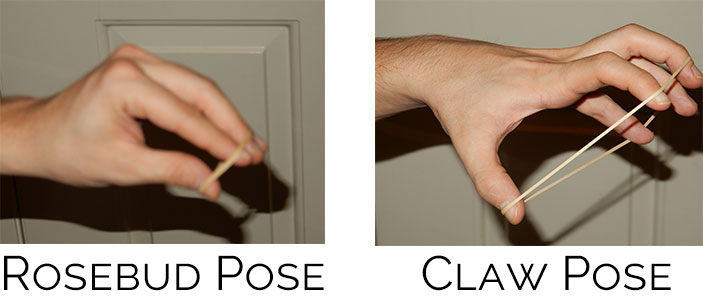
Get a Number 32 Elastic Band from an office supply store. Place the elastic band around the tips of your fingers in a rosebud pose and then go from the rosebud pose to a claw pose. Do 10 to 15 repetitions in three different segments.
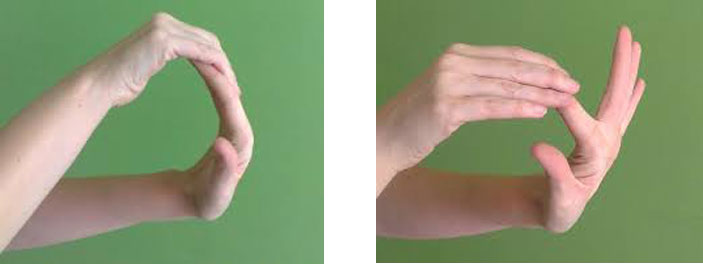
Stretch all fingers back simultaneously and hold for 5 seconds the release and repeat for 10 repetitions. Then Stretch each finger individually hold for 5 -10 seconds and then release and repeat for 10 repetitions. While stretching one finger it is good to wiggle the other fingers.
What Exercises Should I Avoid?
Some people think any exercise of their hand is good for overcoming Carpal Tunnel Syndrome. This is not the case. Our Doctors have found that there are certain common exercises that people tend to think are helpful to overcome Carpal Tunnel. However, they only make Carpal Tunnel Syndrome worse. Hand Exercises that you should not be doing if you have Carpal Tunnel are Squeeze Ball Exercises and Hand Gripping Exercises. Most people with CTS find that they are already doing too much gripping type activity. Also, any Yoga Poses that put a lot of weight on your wrists should be avoided:
Avoid exercises of the hand like the so called “stress ball” squeeze that work the Flexor Muscles in the forearm. Ironically, this is recommended as a good hand exercise by many, but this is probably the worst thing you can do for your hands if you have Carpal Tunnel Syndrome. Also, stay away from the hand grippers. These work the forearm muscles for grabbing things, which already get plenty of work in most people’s daily routine of grabbing objects and holding the object. With Carpal Tunnel there is ofen an imbalance between the forearm muscles. The Flexor Muscles are usually too strong and the Extensor Muscles in the forearm are too weak.
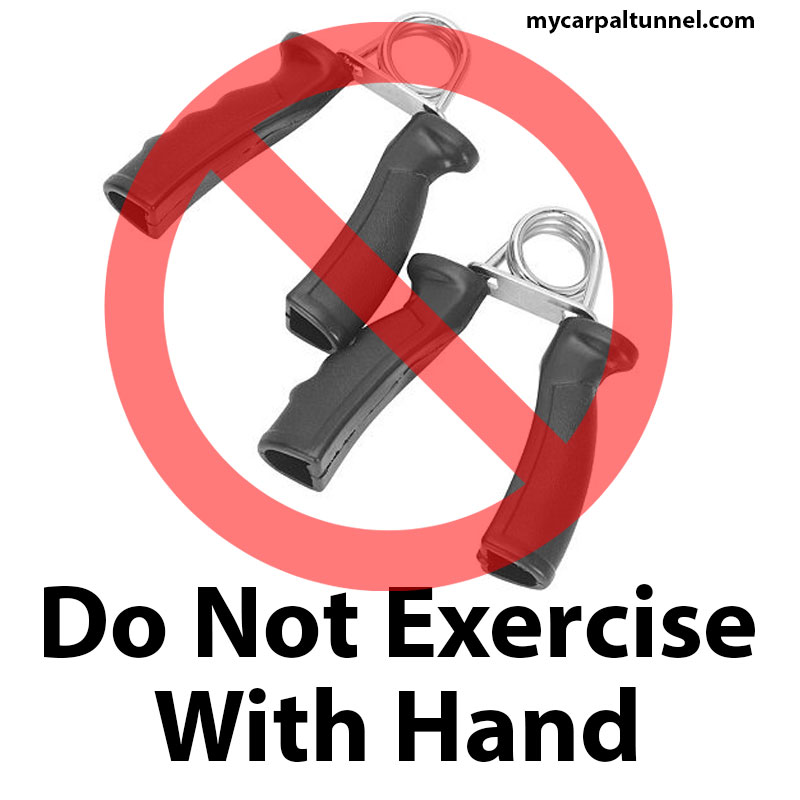
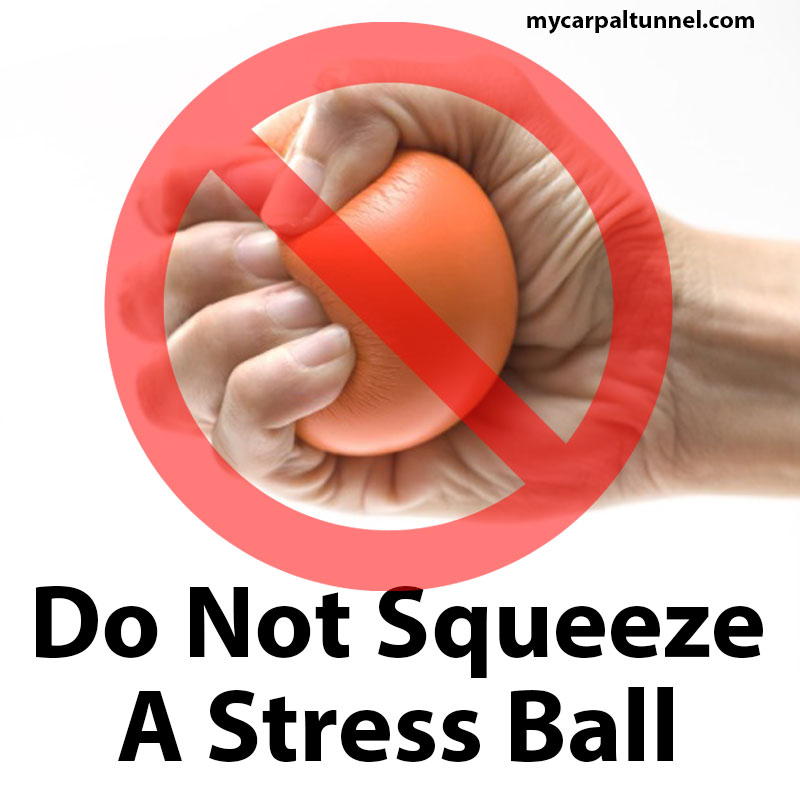
Any yoga stretches and poses where you put a lot of weight on your hands with the wrist at a right angle will aggravate Carpal Tunnel Syndrome. Do not do any yoga exercises like this if you have Carpal Tunnel or are trying to recover from CTS.


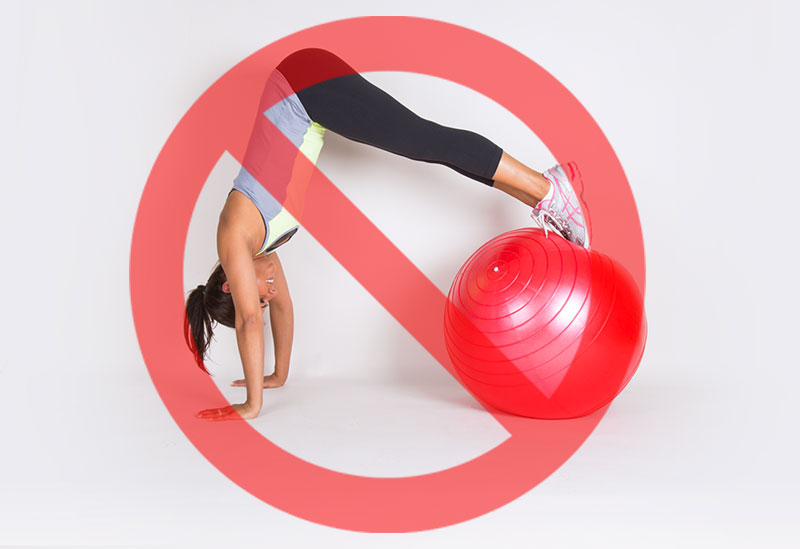
Many sufferers of repetitive stress related carpal tunnel syndrome supplement their exercise regimen with the Carpal Solution with remarkably more rapid and consistent results.
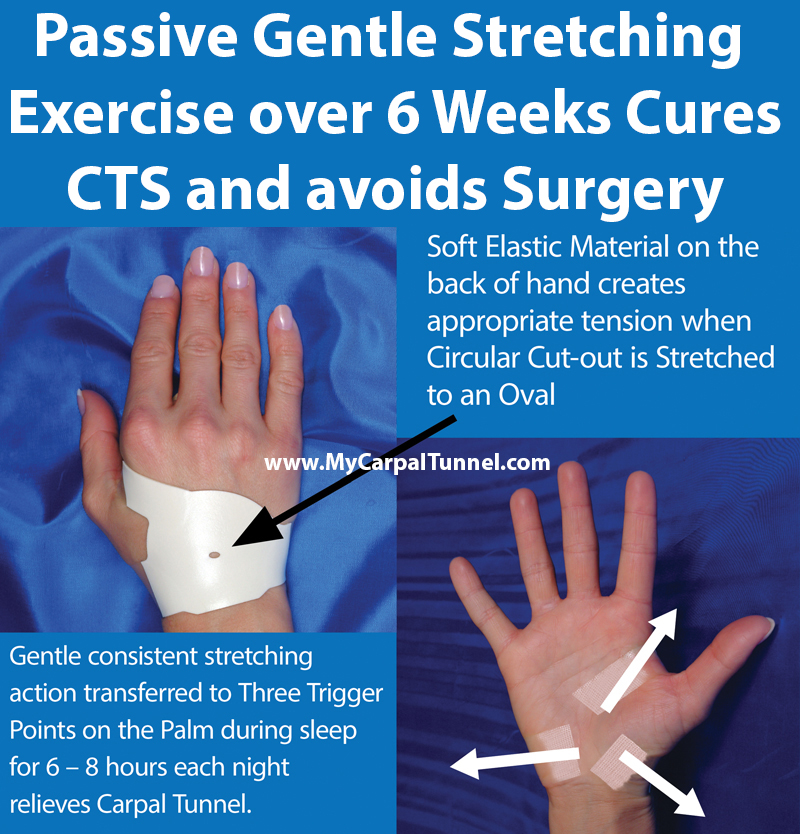
The Carpal Solution alternative to surgery is Self-Applied Before Retiring to Bed in Three Easy Steps
This clinically proven product, which has won top honors from the Eureka Medical advisory board, is a unique way to reduce the inflammation and discomfort of carpal tunnel syndrome. The therapy is noninvasive, and patients can apply the Carpal Solution in the privacy of their own homes before retiring to bed with little disruption to their active lives and no embarrassing questions like: “What did you do to your hand?”
Some of the things people dedicated to finding alternative medical treatments and exercise regimens like most about the Carpal Solution are listed here.
Consistent gentle stretching exercise is applied to the hand in all the right places for eight hours per night while the hand is completely relaxed and in the deep restorative repair mode. There is no downtime and because it is all natural you can use the Carpal Solution with confidence knowing their are no potential complications or limits.
You can go back to the Carpal Solution whenever you experience flare-ups.
People with repetitive stress syndromes like CTS, find that they often have flare-ups even after surgery.
This is why it is so important to choose an all natural therapy that has no downside and works in days to relieve your worst symptoms and offers complete remission within the Six Week Protocol.
Unlike other carpal tunnel wrist braces or splints which stiffly hold the hands, wrists and forearms in a neutral position (resulting in muscle atrophy and compaction and/or irritation of the soft tissue in and around the Carpal Tunnel), the Carpal Solution stretches and exercises the soft tissue in the base of the hand around the carpal tunnel to increase blood circulation and relieve pressure on the median nerve.
Since CTS results from pressure on the median nerve, once the pressure is relieved the syndrome symptoms go away quickly. Once the discomfort is relieved, natural hand movement during the day is usually enough exercise to rehabilitate hand and forearm muscle to normal levels.
Hand stretches and exercise regimens are more easily performed when the constant hand pain is relieved and can be helpful to more quickly rebuild lost muscle in the hand, below the thumb and in the forearm. Proactive rehabilitation complements the Carpal Solution and can accelerate recovery.
Patients who have employed the Carpal Solution for the six-week protocol have reported an over 95 percent satisfaction with the product. You will want to review MyCarpalTunnel.com now to get the facts on carpal tunnel syndrome and learn more about this exciting innovation in CTS therapy. The Carpal Solution is a great boost to hand and forearm muscle rehabilitation.
The Carpal Solution has been used by over 81,000 people and continues to get a 97% success rate among patients. Neurologist call the Carpal Solution a better first line of treatment for Carpal Tunnel Syndrome. Patients simply call it: “My Carpal Tunnel Cure!”

